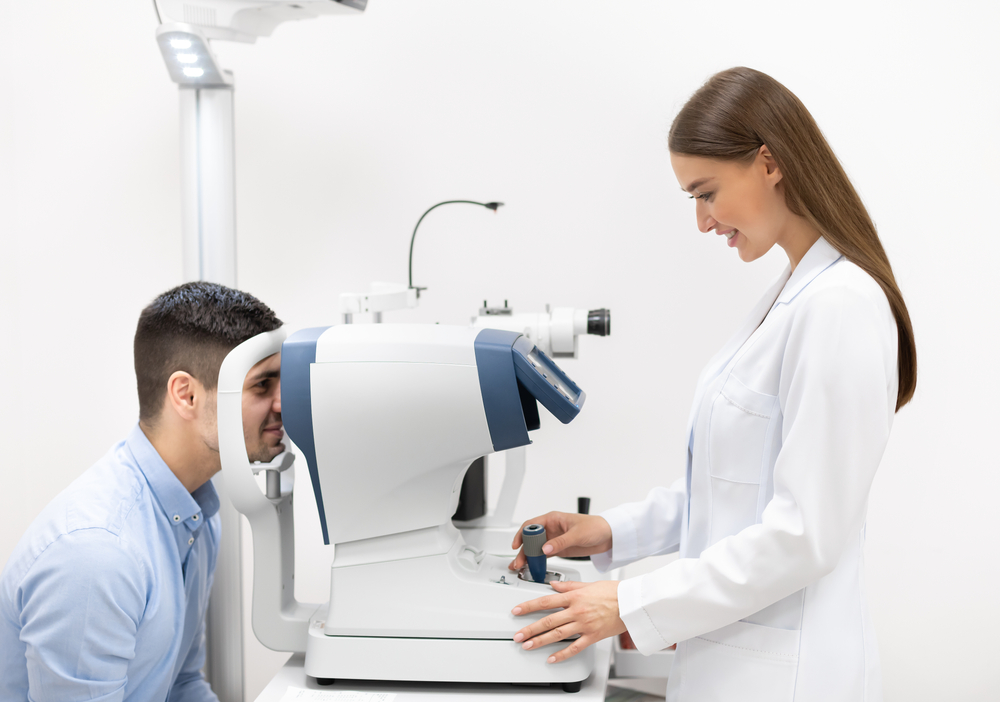
As we age, various eye conditions can develop, potentially impairing our vision and impacting our quality of life. Two of the most common eye conditions are glaucoma and cataracts. Understanding the differences between these conditions and how to identify them is crucial for maintaining your eye health.
Understanding Glaucoma
Glaucoma is a group of eye conditions characterized by increased pressure within the optic nerve, which can damage the optic nerve and lead to vision loss. This increased pressure is often caused by a buildup of fluid in the eye, which the eye is unable to properly drain. The most common type of glaucoma is open-angle glaucoma, which typically develops gradually over time. Symptoms of glaucoma may include:
- Peripheral vision loss: As the optic nerve becomes damaged, you may notice a gradual narrowing of your visual field, often referred to as "tunnel vision."
- Difficulty adjusting to changes in lighting: Glaucoma can make it challenging to adapt to sudden changes in light, such as when entering a dark room.
- Headaches or eye pain: In some cases, the increased eye pressure can cause discomfort, such as headaches or a dull, aching pain in the eye.
It's important to note that glaucoma often develops without any noticeable symptoms in its early stages, making regular eye exams essential for early detection and treatment.
Recognizing Cataracts
Cataracts are a condition in which the lens of the eye becomes cloudy, impairing your vision. This clouding is typically caused by the natural aging process, but it can also be the result of other factors, such as eye injuries, certain medical conditions, or prolonged exposure to ultraviolet light. Symptoms of cataracts may include:
- Blurred or cloudy vision: As the lens becomes more opaque, your vision may become increasingly blurred or cloudy, making it difficult to perform everyday tasks.
- Increased sensitivity to glare: Cataracts can cause increased sensitivity to bright lights, making it challenging to drive at night or be in well-lit environments.
- Difficulty with night vision: The clouding of the lens can make it harder to see clearly in low-light conditions.
- Frequent changes in prescription: As the cataract progresses, your eyeglass or contact lens prescription may need to be updated more frequently.
Unlike glaucoma, the symptoms of cataracts often develop gradually over time, making it important to be aware of any changes in your vision and to schedule regular eye exams.
The Importance of Early Detection and Treatment
Early detection and treatment of both glaucoma and cataracts are crucial for preserving your vision and preventing further vision loss. Untreated, these conditions can lead to significant and potentially irreversible damage to the eyes, resulting in partial or complete blindness.
By recognizing the symptoms and seeking timely medical attention, you can take proactive steps to manage these conditions and maintain your eye health. Regular comprehensive eye exams with an optometrist are the best way to detect these conditions early, allowing for prompt treatment and the preservation of your vision.
How to Determine if You Have Glaucoma or Cataracts
Determining whether you have glaucoma or cataracts requires a comprehensive eye examination by a qualified eye care professional. During this examination, your optometrist will perform a series of tests to assess the health of your eyes and identify any underlying conditions. Some of the key tests that may be performed include:
- Tonometry: This test measures the pressure inside your eye, which is a crucial indicator for glaucoma.
- Slit-lamp examination: Using a specialized microscope, your eye care provider can closely examine the structures of your eye, including the lens, to detect the presence of cataracts.
- Ophthalmoscopy: This test allows your eye care provider to examine the optic nerve, which can reveal signs of glaucoma-related damage.
- Visual field testing: This assessment measures your peripheral and central vision, which can help identify any vision loss associated with glaucoma or cataracts.
Based on the results of these tests, your eye care provider will be able to determine whether you have glaucoma, cataracts, and develop an appropriate treatment plan.
Take Control of Your Eye Health
Glaucoma and cataracts are two of the most common eye conditions that can significantly impact your vision and quality of life. By understanding the causes, symptoms, and importance of early detection and treatment, you can take a proactive approach to safeguarding your eye health. By prioritizing your eye health and working closely with your eye doctor, you can take control of your vision and enjoy the world around you to the fullest.
At Great Lakes Vision Care, we are dedicated to providing comprehensive eye care services to patients of all ages. Whether you're concerned about glaucoma, cataracts, or any other vision-related issues, we are here to help. Visit our office in Monroe, Michigan, or call (734) 212-5157 to schedule your appointment and take the first step towards maintaining your eye health.









